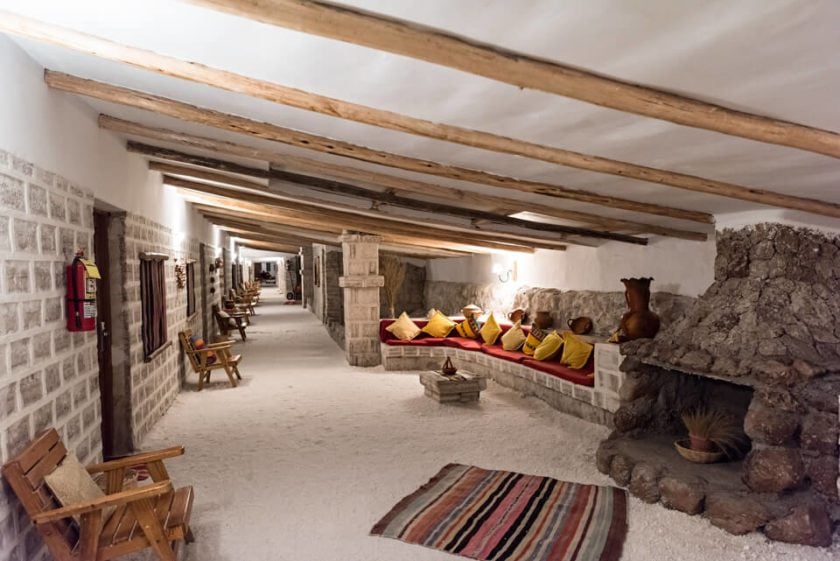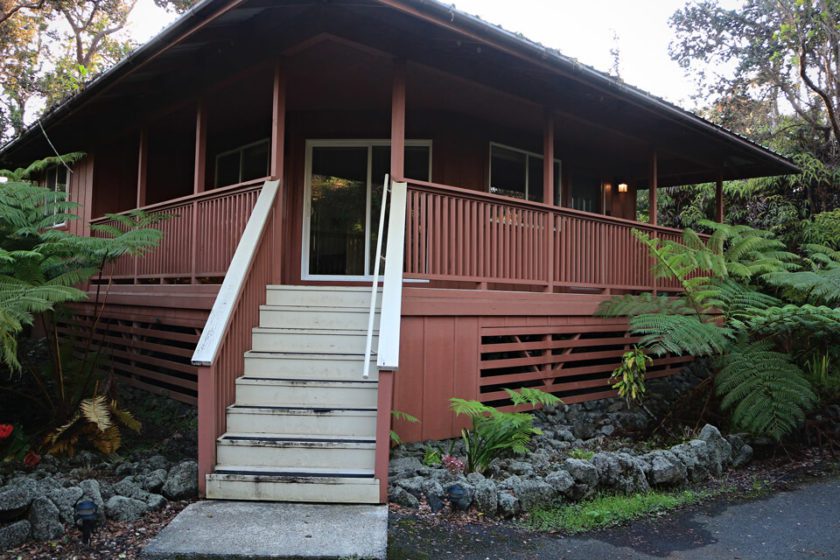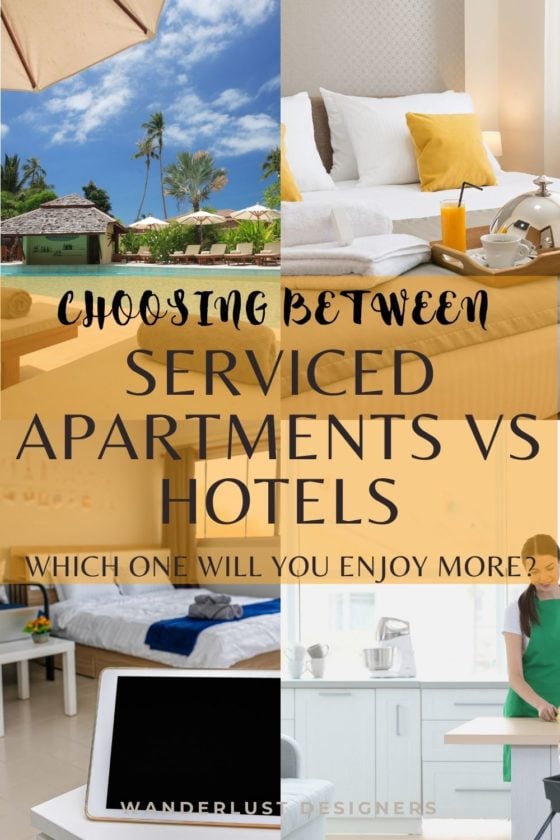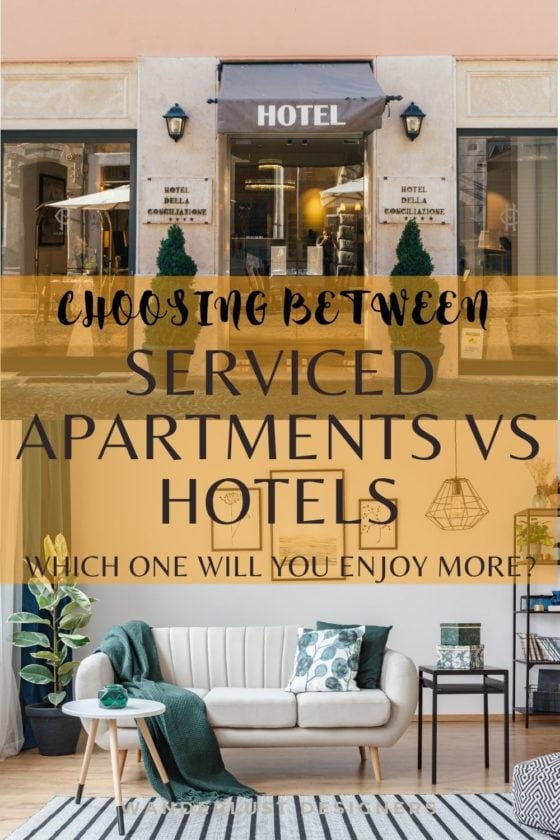Serviced apartments vs hotels: which is best for your trip?
You’re planning your trip, found your destination and have a rough itinerary in mind, and then it’s time to find accommodation. And that’s where there’s another choice to be made – serviced apartments vs hotels!
It’s not easy, because both of them have their pros and cons.
No one can tell you that “this is the better choice” – it really depends on you as a person if you’ll prefer staying in an apartment or a hotel.
But what I can do is list the key differences between serviced (or non-serviced, for that matter) apartments and hotels.
What is a serviced apartment?
Well, first let’s get this question answered, as it might not be quite clear – different sites mean different things when saying “serviced apartment”.
Basically, a serviced apartment is a fully furnished apartment intended for short and longer-term stays. Depending on the apartment in question, you might have to take with you (or pay additionally for) bed linens, towels, and toiletries.
Some years ago, mostly business travellers who needed to stay away from home for a longer time used serviced apartments. Now it has become more mainstream to use apartments for general travel as well.
You should know, though, that on Airbnb and similar sites, there are private apartments as well as serviced ones. Serviced apartments generally are generally more similar to hotels with the 24h front desk etc.
For ease of it, though, I might be using just “apartment” in this article, because in recent years many of the “private” apartments have become similar to the serviced ones, as in, they offer many of the amenities that hotels offer, such as cleaning of the rooms during your stay.

Difference #1 between serviced apartments and hotels – kitchen
I think a fully equipped kitchen is the biggest reason why we usually choose an apartment over a hotel, especially now when travelling with Emma.
Very, very few hotel rooms have kitchens or kitchenettes, but it’s a standard to have in an apartment.
The quality – and amount – of kitchen stuff differs, but you can count on having the very basics at least. Your packing list for a serviced apartment will still be longer than for a hotel vacation, but having a kitchen gives great freedom.
The best thing about having a kitchen is that you can rest assured that at any time when you want, you can prepare food. It’s especially important in many places in the south of Europe where the restaurants quite often are closed in the middle of the day and open for dinner at 7 in the evening or even later.
Plus, if you’re travelling out of season, there might not be any restaurants (at least good-enough ones) open at all.
Difference #2 – space in hotels and in serviced apartments
In general, the apartment will have more space.
If the most you usually see squeezed in a hotel room (unless you go for a premium one, of course) is a bed, a tiny table, and, if you’re lucky, an armchair, then in the apartment you can count on more. Even in a studio, there will be a kitchen, bed, some table where to eat, and some space for resting.
Nice, right?
Difference #3 – amenities in serviced apartments vs hotels
This is where the hotel at last comes first.
The standard hotel usually has a daily room cleaning, towel changes, breakfast, minibar, room service…
More often than not, an apartment will lack these.
If there is a cleaning and a towel change, it will most probably be once per stay sometime after the 4th night.
The towels and toiletries even might be for an additional charge, as we found when looking for an apartment in Italy.
Both the hotels and serviced apartments can come with staff who you can contact in case of questions or if you have some requests. Both can have pools, wifi, restaurants on-site and other amenities – it just depends on the property in question.
Difference #4 – how the stay itself differs

In a hotel, you have a no-fuss stay. You don’t need to do any chores – if you wish [to ignore the Help us keep green sign in the bathroom], you can get clean towels and bed linens every single day. Your bed is made, the room – vacuumed and washed, trash is taken out, dust cleaned… just come and enjoy your life. Your laundry even can be done for you, ironing included.
On the other hand, in an apartment, you are like at home, which means not only extra comfort but extra chores as well. So, at least sometimes you need to clean yourself if something’s dirty, dishes need to be done (if you’re lucky, there’ll be a dishwasher available), the towels might not be changed, and you’ll most probably have to take the trash out by yourself.
Of course, there are serviced apartments that are more similar to hotels in the way that they’re serviced more, but unfortunately, I haven’t yet encountered such in Europe.
Difference #5 – cost
This might surprise you, but sometimes it’s cheaper to stay in an apartment instead of a hotel.
Usually, the longer you want to stay in an apartment, the cheaper it becomes. Plus, when you calculate how much you can save on not eating out in restaurants, the difference becomes just so much bigger.
The same goes with the size of the group, as usually when staying in an apartment, you just pay for the place itself, not the number of people like when staying in a hotel. So, the more guests, the cheaper the cost per night.
Of course, if you have to pay separately for linens, towels, and other things, it increases the cost of an apartment.
Be careful, though, that when staying in a private apartment, it might happen that you need to pay a hefty cleaning fee at the end of the stay – be sure to read the advertisement properly.
Serviced apartments vs hotels – similarities
There are some similarities that hotels and serviced apartments have.
Cleanliness
One of the similarities is cleanliness.
Although on many serviced apartments’ websites you’ll see that they are “cleaner than private apartments”, in our experience that’s not actually the case.
Even in higher-end ones we’ve found the floors to be dirty – both hotels and serviced apartments. In one of the last apartments we stayed in, we found a whole tomato under the kitchen table, haha!
Location
I don’t know why this is marked as a difference on many websites, but you can find both apartments and hotels in the centre and outskirts of places. They both can be in a quiet green corner of the city or on a busy street.
Of course, there are always exceptions. When we went on a tour in Bolivia through the Salar de Uyuni and lagoons around it, there was only one hotel available.

Hidden costs
These happen everywhere, so make sure to properly read what’s included in your stay, whether in a hotel or in an apartment, before booking.
The hidden costs that I’ve noticed most often are WiFi, breakfast, towel change, cleaning, and parking.
Privacy
I haven’t noticed a huge difference in privacy when staying in serviced apartments vs hotels.
You still meet many people when leaving the room, whether it’s in the hall of the hotel or on the terrace next to yours in an apartment building.
Of course, though, since there’s usually more space in the apartment itself, you can hide from your trip-mates to have some time for yourself. That’s kind of cool, I think.
So, how to choose between serviced apartments and hotels?
It really depends on what you’d like from your stay.
I know that I prefer an apartment. I like the choice of making my own dinner vs eating out all the time. Yes, you do need to wash the dishes afterwards, which is not so nice, but at least everyone in the group can have some wine and not worry about driving home.
And I wish we had stayed in a serviced apartment when we spent a whole month travelling around Chile (including Patagonia), as I was so tired of having restaurant food then! I just missed some plain old pasta for dinner, really.
But for you?
Do you want the extra convenience that a hotel offers, like pretty much falling out of bed and straight up going for a ready-made breakfast? Or having your room cleaned all the time?
In this great battle of serviced apartments vs hotels, it’s you who matters the most.
Like this post? Pin it!










nice blog…keep writing…
Booking Process: Hotels typically have standardized booking processes and dedicated booking platforms, making it easier to find and reserve accommodations. Apartments, on the other hand, can be booked through various channels such as vacation rental websites, Airbnb, or directly with the property owner, requiring a bit more research and flexibility in the booking process.
Ultimately, the choice between them
Great article!! We travel full-time, we are retired, and for long stays, the Airbnb to be our preferred choice. As you said in your well-written article, the kitchen, more space,and not to be around the hotel schedule , makes the stay more enjoyable.Prices differ from locations. Until a few years ago, Airbnb was less expensive than hotels, we do not find it to be the case anymore. Thank you for the useful information you share in your blog!!Adrian